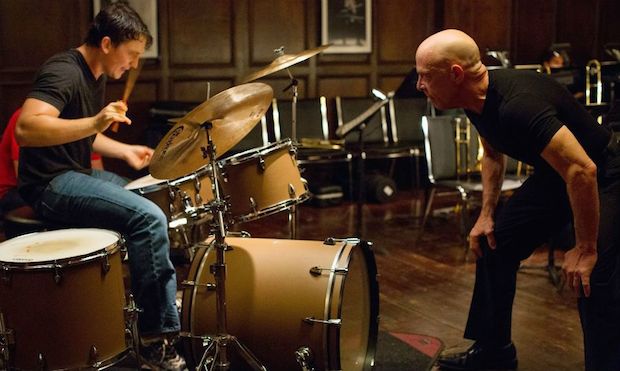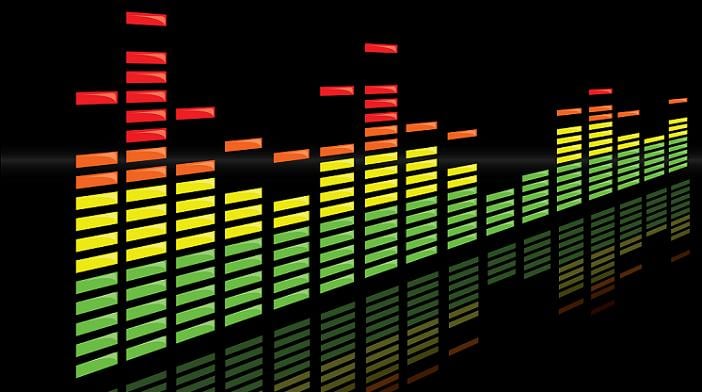 Image via cmuse.org
Image via cmuse.org
No matter how strong your passion is for music, there will be times when you need an extra push to get to your fullest level of success. It's great to have bandmates, mentors, and friends to motivate you, but the number-one person to rely on is yourself. It's also important to note that challenging yourself as a musician isn't just about getting better as a performer; you'll want to work on building your network, your presence in your local music community, your songwriting, etc.
So, how do you keep yourself challenged and inspired? Well, it isn't always easy, but we believe in you! We're going to share with you six ways to challenge yourself as a musician – some of which may surprise you!
1. Write a new song each week and post it online
As Ira Glass famously said, producing a large body of work is one of the best ways to find your own voice as an artist. Famous songwriters like Jason Mraz participate in weekly songwriting games and, through that exercise, actually write songs that make it to their big albums. Make it a goal to challenge yourself to write a new song each week, even if it’s just a short little song. If you’re not a songwriter, compose a new melody or chord progression each week. You don't have to do anything with it, but keep your creative voice active – don’t let it fall silent to outside obligations or just a tendency to put off writing.
Keep yourself on track by making it public. Tumblr is a great platform to post sketches or snippets – you don't have the commitment of SoundCloud or Bandcamp. Each week, post a clip or lyrical preview of your new song. Make sure people know they're demos, but use the public eye as your source of inspiration to get ideas finished!
2. Practice X hours a day – or else
All serious musicians should challenge themselves to practice daily. If you're a singer, it may be more understandable to keep your technical training limited to one hour per day – you have to rest your voice! However, do what you and your vocal teacher believe is best for you. But in general, pick a realistic amount of time to dedicate daily to your craft. If you're looking to play for an orchestra as a performer, you may want to shoot for something more rigorous like practicing four to six hours per day.
Nonetheless, we recommend making a time log with daily goals. Each day, write down your productivity, and keep track of it to go along with your goals. This way, you'll be able to refer to how well you've been doing. To keep yourself in line, make up a few "consequences." It's fun to get a friend in on the action. For example, you could say that if one of you doesn't meet your practice goal, the other has to buy dinner. Whatever it may be, keep yourself in line with a string of easy-to-handle consequences.
[How to Motivate Yourself to Practice, Even When You Don't Want To]
3. Make a new music connection every day
CD Baby founder and music industry guru Derek Sivers famously gave the wonderful advice to meet three new people every week. We support his advice, and if you want to take it one step farther, challenge yourself to make a new connection each day. This could be as simple as striking up an online conversation with another musician on SoundCloud, or tweeting with someone who runs a music venue you'd like to play. The important part is that you simply make a connection – that the person gets a small sense of who you are and what your music represents. Add his or her info to a database to keep all of your connections organized. If you can’t get someone to respond to you, at least make it a note to follow his or her work and what he or she does. At the very least, learn from someone each day.
[How to Connect With Influencers When You Have Zero Music Industry Contacts]
4. Discover a new artist each week
Just as you expect people to support your music, you must support other musicians. Each week, scope out a new artist that you actually like and would be interested in seeing live, touring with, or collaborating with. If you're not sure how to find new music, we suggest making a Feedly account. You can add different music blogs that write about artists at your level or a bit higher. While discovering new, huge acts is great, you'll be more likely to connect with artists who are hitting around the same numbers as you. Follow them on social media, download some of their music, and send them a message to let them know you like the music. But it's very important that you actually like the music. Nothing is more irritating than getting a self-serving message that’s wrapped up in a fake compliment. People can read between the lines. Be genuine and supportive of new music. Feed into the scene that you want to feed you.
5. See at least one local show a week
This challenge seems easy enough, but you'd be surprised at how difficult it can be for some musicians to clear a night each week to see new live, local music. Local shows aren't always pleasant; sometimes you have to sit through numerous bands that you don't care for to see the band you like perform for less than 20 minutes. The sound isn't always great, genres don't always go together, and turnout can be inconsistent. Nonetheless, as we continue to mention about the giving-and-receiving nature of music, you need to be present and supportive in your music scene in order to receive that type of support back. Maybe you're just the best thing in your town since sliced bread, and everyone flocks to your shows regardless, but if that isn't the case (which it usually isn't), support your local scene.
Make it a challenge to see one show per week. You likely already receive several concert invites a day on Facebook – schedule a few you'd like to check out each week, and make it a goal to attend at least one. Show your support, see what’s going on in the scene, and check out new venues.
6. Play a show a week, even something impromptu
This is a tough goal for some musicians who don't play a traditional set. If you're a singer without a band or an electronic musician without a DJ setup, for instance, you may wonder how you can perform your music. Come up with an easy, creative way to play music in front of people once a week. You don't need to book a show or even play at an open mic. Look up the busking laws in your town and hit the streets. You might make a few dollars, but more importantly, you'll be challenging yourself to have your music audience-ready at least once a week.
Performing in front of others really teaches you about your strengths and weaknesses, and if you're always hunched over in the studio or in a practice space, you might miss out on that insight. Once a week, find an open mic or street corner to just play in front of others. It might just take your performing abilities to the next level.
[5 Steps to Fill Up Your Calendar With Gigs Every Week of 2015]
Sam Friedman is an electronic music producer and singer-songwriter based in Brooklyn, NY. His music blends experimental ambience with indie-driven dance music. In addition to pursuing his own music, he is a New Music Editor for Unrecorded and is passionate about music journalism. Check out his music and follow him on Twitter @nerveleak.







